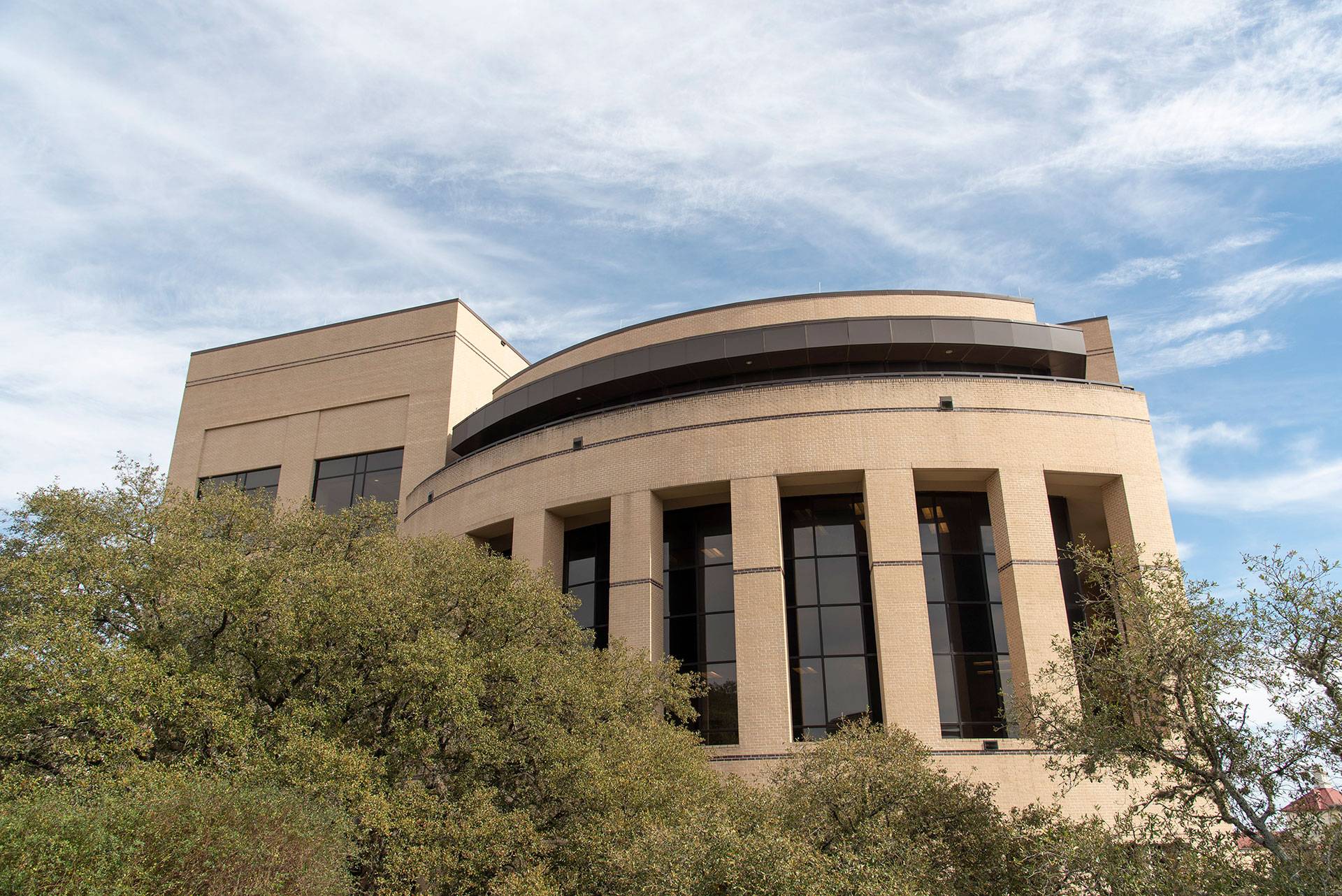Apply analytics to economics and financial problems.
Quantitative Finance and Economics

Program Overview
The AACSB-accredited McCoy College of Business is the first in the region to offer a master's degree combining economics and finance to meet the needs of diverse employers and well-qualified students. The program emphasizes using high-quality data for financial and economic analysis to provide insights into firm strategies and policy questions.
All McCoy College degree programs are accredited by AACSB International – The Association to Advance Collegiate Schools of Business. The accounting degree programs also hold separate accreditation by AACSB.
Course Work
The program requires 30 credit hours with thesis and non-thesis options. The degree program has 18 credit hours of required courses and 12 credit hours of prescribed electives. Required courses provide quantitative and theoretical modeling sought after in industry; electives provide enhanced knowledge in a specific technical area. Classes are held in the evening, and students can attend full or part-time. Students enrolling in nine hours each semester can complete the program 3-4 semesters.
| Degree | Hours | Thesis Option | Location |
|---|---|---|---|
Degree M.S. | Hours 30 | Thesis Option Non-Thesis | Location San Marcos |
Degree M.S. | Hours 30 | Thesis Option Thesis | Location San Marcos |
Program Details
Growth is expected to be up by 30% in occupations requiring quantitative finance and economics with median annual wages at least twice the national average.
Program Mission
The mission of the Department of Finance and Economics is to provide students the ability to pursue learning throughout their lives, accept responsibility for their actions, and contribute to the common goals of society. Advanced skills in financial and economic analysis using large data sets have become increasingly important workforce credentials among firms seeking to gain a competitive edge in the marketplace; yet professionals with these skills have been in relatively short supply. Finance and Economics are closely intertwined disciplines, with each field contributing insight across different dimensions to the same competitive challenges that firms face and policies that governments create. This intersection of interest and shared outcome create synergies between the disciplines that support offering a degree program that combines both economics and finance.
Career Options
Graduates will possess important marketable skills, including the abilities to analyze financial and economic data, perform high-quality financial and economic analyses, and communicate the results and implications of these analyses to inform business decisions.
Examples of careers include:
- economist
- quantitative risk analyst
- business analyst
- financial analyst
- financial manager
Program Faculty
Faculty in the Department of Finance and Economics have diverse research interests, including foreign direct investment and international remittance flows, sports economics, environmental economics, law and economics, corporate finance, cross-listing of stocks, bond and loan pricing, and energy finance. Research has been published in top-ranked peer-reviewed journals such as Southern Economic Journal, Contemporary Economic Policy, Harvard Environmental Law Review, Annals of Regional Science, Journal of Financial and Quantitative Analysis, Journal of Banking and Finance, Journal of Prediction Markets, Journal of Alternative Investments, Energy Risk, Macroeconomic Dynamics, and Journal of Money, Credit, and Banking.
Contact us for general questions about your application, funding opportunities, and more. If you have specific questions after reviewing the program details, contact the program's graduate advisor.

Already know that Texas State is right for you?
Application Deadlines
-
For Entry Prior to Summer 2026
DEADLINES U.S. CITIZEN INTERNATIONAL Fall - Priority January 15 January 15 Fall - Standard June 1 June 1 -
Effective for Summer 2026 Entry and Beyond
DEADLINES U.S. CITIZEN INTERNATIONAL Fall - Priority February 1 February 1 Fall - Standard August 1 June 1
For important information regarding deadlines and decision timelines, review the Application Policy Information page.
Admission Requirements
The items required for admission consideration are listed below. Additional information for applicants with international credentials can be found on our international web pages.
-
Application
- completed online application
Review important information about the online application.
-
Application Fee
- $55 nonrefundable application fee, OR
- $90 nonrefundable application fee for applications with international credentials
Review important information about application fees.
-
Transcripts & GPA
- Baccalaureate degree from a regionally accredited university. (Non-U.S. degrees must be equivalent to a four-year U.S. Bachelor’s degree. In most cases, three-year degrees are not considered. Visit our International FAQs for more information.)
- A copy of an official transcript from each institution where course credit was granted.
- A competitive overall GPA or a competitive GPA in your last 60 hours of undergraduate course work (plus any completed graduate courses).
- Background Course Work: Must have a minimum grade of B in the following subjects:
- Principles of Microeconomics or Macroeconomics (ECO 2314, ECO 2315 or equivalent)
- Quantitative Methods and Statistics (QMST 2333 or equivalent)
- Business Calculus (MATH 1329 or equivalent)
-
Test Scores
GRE/GMAT
- Official GRE/GMAT (general test only) test scores are not required for applicants with an overall 3.5 GPA or a 3.5 GPA in your last-60-hours of undergraduate course work. If your GPA falls below the minimum requirement, the official GRE/GMAT (general test only) with competitive scores will be required in order to be considered. Graduate Admissions will notify applicants via email should this occur.
For potential test waiver information, please visit the McCoy College of Business GMAT/GRE Waiver website.
Approved English Proficiency Exam Scores
Applicants are required to submit an approved English proficiency exam score that meets the minimum program requirements below unless they have earned a bachelor’s degree or higher from a regionally accredited U.S. institution or the equivalent from a country on our exempt countries list.
- official TOEFL iBT scores required with a 78 overall and minimum individual module scores of
- 19 listening
- 19 reading
- 19 speaking
- 18 writing
- official PTE scores required with a 52 overall
- official IELTS (academic) scores required with a 6.5 overall and minimum individual module scores of 6.0
- official Duolingo scores required with a 110 overall
- official TOEFL Essentials scores required with an 8.5 overall
This program does not offer admission if the scores above are not met.
Review important information about official test scores.
-
Documents
- responses to specific essay questions (two essays are required):
- Why have you chosen to pursue a master's degree in marketing research and analysis at Texas State University? How does this program fit your talents or interests and tie to your future career goals?
- Tell us about your three most significant accomplishments. How do you think the lessons you learned from them have prepared you for success in graduate school and beyond?
- Optional Personal Statement: in cover-letter format, you may address the admissions committee about anything related to your background, application, and/or desire to attend graduate school at Texas State University
- resume/CV detailing work experience, extracurricular and community activities, and honors and achievements
- three letters of recommendation from persons best able to assess your ability to succeed in graduate school.
Review important information about documents.
- responses to specific essay questions (two essays are required):